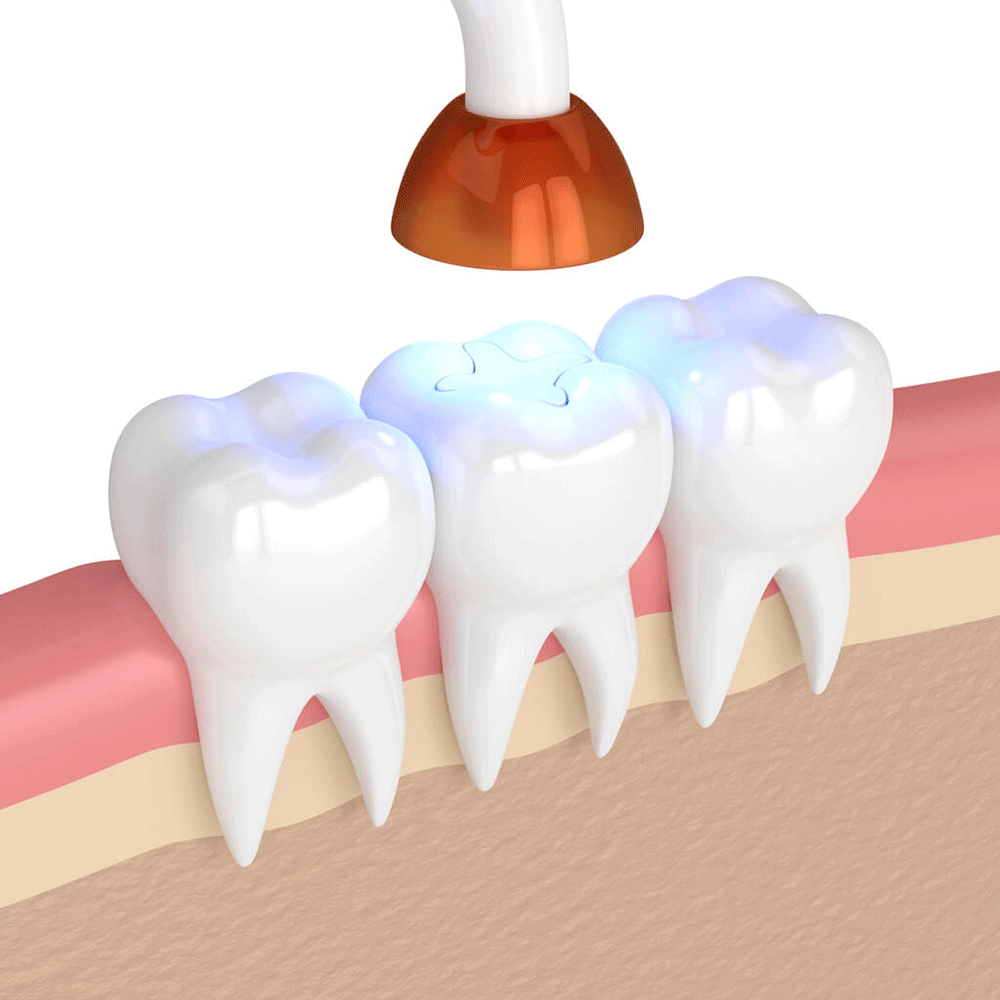Dental Sealants
Tooth decay and cavities are both common dental issues. Receiving tooth-colored sealants can help to prevent simple decay from becoming something worse.
Dental Sealants in Fairhope, AL
Dental sealants are thin, protective coatings applied to the chewing surfaces of molars and premolars to prevent cavities. Made from plastic resin, they create a physical barrier that shields the vulnerable pits and fissures of the teeth from bacteria and food particles. By sealing these crevices, dental sealants help to reduce the risk of cavities developing in the deep grooves where toothbrush bristles often struggle to clean thoroughly. The procedure is quick and painless, typically taking just a few minutes per tooth. First, the dentist or dental hygienist cleans the tooth surface, then applies an etching gel to roughen the enamel, ensuring better adhesion of the sealant. Lastly, the sealant is painted onto the tooth and allowed to harden, providing long-lasting cavity protection for years to come. Dental sealants are an effective preventive measure, particularly for children and teenagers at higher risk of cavities.

-
How do dental fillings for cavities work?
Cavity and tooth fillings are required when decay leaves holes in teeth. Left unchecked, the decay will continue to spread and damage the tooth’s hard material and eventually the inner pulp and root system. During the filling procedure, dentists clean away decay inside the cavity with a drill. However, because this doesn’t fix the damage that is already there a filling is necessary. The intent of the filling is to replace the part of the tooth that was destroyed by tooth decay. Your dentist will mold the filling to fit the shape of the existing tooth to restore its structural integrity and protect the softer enamel exposed by decay.
-
What types of fillings are there?
There are several types of materials used for teeth fillings including gold, porcelain, silver amalgam (an alloy consisting of mercury mixed with silver, tin, zinc, and copper), tooth-colored plastic, composite resin and glass ionomer. The material used depends on your dentist, the extent and location of your tooth decay and your insurance coverage.
-
Is tooth sensitivity after a filling normal?
When you get a filling, the area around the infected tooth is numbed. You shouldn’t feel anything for an hour or two after your appointment but once the numbing wears off it’s normal to feel pain in your teeth and gums.
It’s common to experience pain when drinking or eating anything hot or cold. It is also not uncommon to feel pain or greater than usual sensitivity when you brush or floss near the infected tooth.
Minimize Tooth Sensitivity
You can reduce the sensitivity in your teeth and gums by:
- Taking an anti-inflammatory drug that contains ibuprofen
- Rinse your mouth with 1/2 to 3/4 tsp of salt mixed with warm water. This can reduce inflammation
- Temporarily avoiding hot, cold, or acidic foods and drinks.
- Brush and floss gently
- Use a desensitizing toothpaste like Sensodyne or Colgate Sensitive
More Questions?
If you have more questions about fillings and sealants, contact our office and we will be happy to discuss further.

